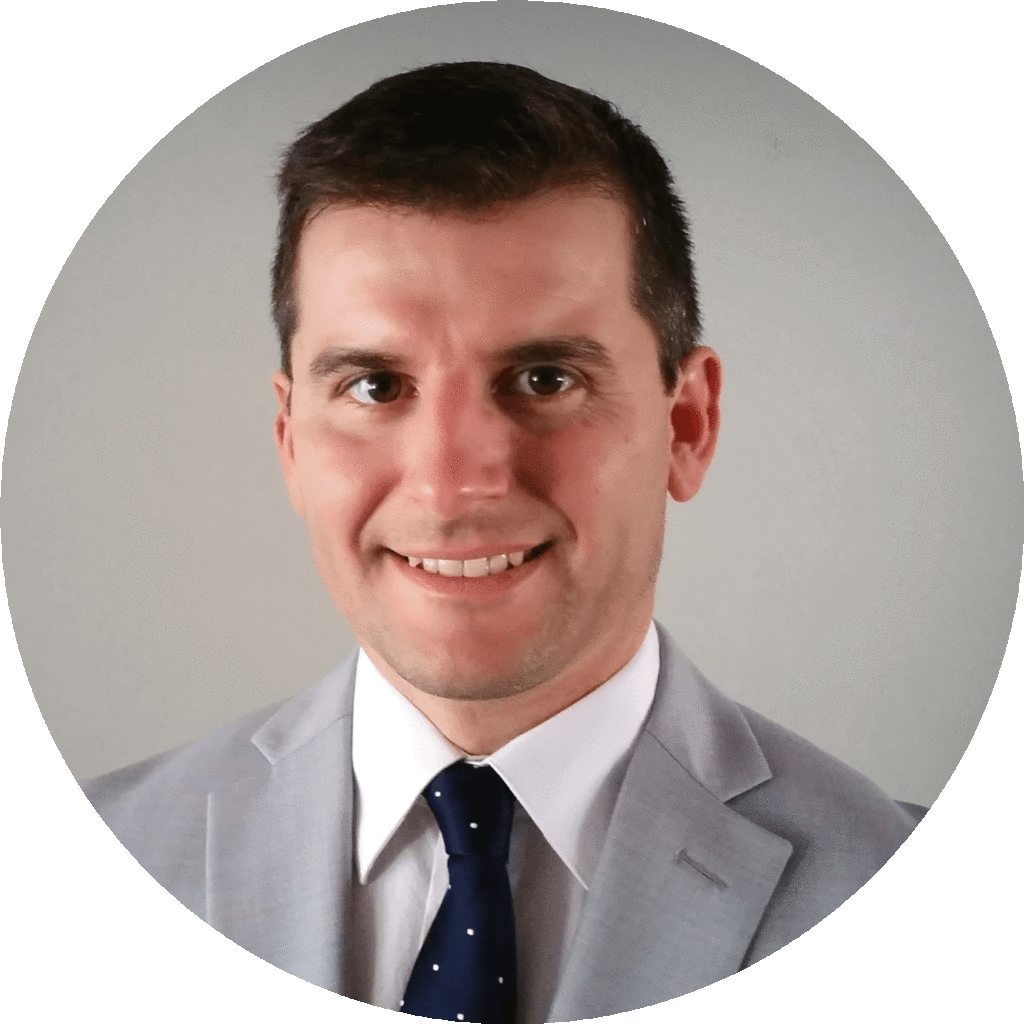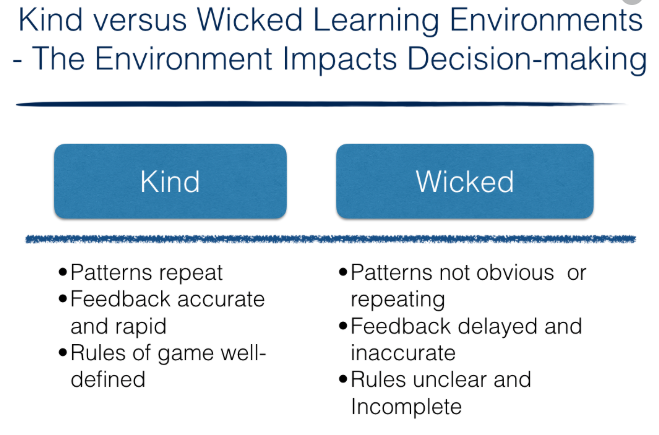If you don’t have your CNIM (or can remember when you didn’t) there’s a difficult truth to face: it’s hard to get hired unless you already have your CNIM and can’t get it unless you get hired.
But that’s really just the first hurdle. Here’s the second isn’t-really-but-can-feel-like-it truth: now that you have your CNIM, you’re stuck. If your company has a career ladder that branches off into areas like clinical, education, operations, sales, etc., you might find that second truth foreign. If your company doesn’t, you might have found yourself grunting that sentiment under your breath more than once.
So I’m going to target this second “truth” with what might be a little uncomfortable, especially considering it is mid-2020. And because it’s not the easiest route, you can bet you’ll be headed be on a path less traveled. Like I’ve pointed out before, finding the intersection of scare yet valuable is where you want to spend your time.
Yes, the majority of anyone’s success can and should be attributed to luck.
Exhibit A:

But the small percent of control we have is where we need to focus our energy. Some wins will take some real leg work. A foundation to build before getting started. Other opportunities are quick wins. Just raise your hand and take action. And then there’s the “fat pitch.” This opportunity has everything going in your favor: it’s scarce, valuable, readily available, and congruent with market trends. With all the options you have available to you, it’s important to choose the one with the highest likelihood of paying off. It’s betting on the right horse, or not betting at all.
So first, let’s zoom out to the macro level and see how industry norms contrast with forward momentum, and how that ends up creating a problem, and opportunity, for the way the industry actually works.
Recognize When to Swim With or Against the Current
There’s been a multi-year trend of hospitals outsourcing their neuromonitoring services and industry consolidation — it’s bound to continue. As such, providing coverage needs to become more fluid. That’s the direction neuromonitoring within healthcare is headed and swimming in that direction makes you valuable.
This, however, is in opposition to overarching norms. What’s wanted on the ground floor is more rigid, and diametrically opposed to what’s needed by the system. For example:
- If you want own a niche: specialize. The bundling of services under one roof made for economies of scale and the specialist had more opportunity to take care of less.
- If you want to be a professional: focus. That’s how our school systems are currently set up. To pump out workers focused on deep learning within their domain.
- If you want to build a team: subtract. Being the best isn’t just about recruiting the best. It’s building something together at the speed of trust. Keeping a tight team without the uncontrolled variables accompanying “the extras” helps insure against the unknown cost.
But norms — considered the glue that holds a culture together — are difficult to change. The current healthcare world continues to prioritize the past precedence over future needs. Heading in the direction of fluidity, or an adaptable skillset, is swimming against the current and makes you scarce.
Taking Responsibility of Your Own Career: Own Your Experiences
As habitual, pattern seeking creatures finding comfort in the familiar, the tendency towards status quo dominates our unconscious actions. SNPs prefer to work with their surgeons, surgeons request their SNP, managers start making the schedule with the “given” assignments. There’s always something to complain about when it comes to the schedule, but starting by accepting those 3 factors helps put you at ease.
And that’s not necessarily a good thing.
Remember, getting to valuable and scarce is going to require some level of unease, or everyone would do it. The trick is figuring out what variables are under your control and then adjust towards your goal.
In the above scenario, the tendency towards the familiar has more than one good reason to stay that course. Yes, it feels easier because past experience gives you reassurance, but there’s a good clinical case to make for this routine.
At least in the short run.
What I’m describing here has been called a “Kind Environment.” It’s where learning is made easier and mistakes are easier to manage or avoid. Kind environments have set expectations, patterns to observe, and immediate information allowed. It’s learning to hit a baseball by tossing a 60 mph meatball right over the plate. Right off the bat, you’ll be putting some good wood on the ball and hitting dingers. It’s why we have new-to-the-field SNPs start with spine cases and “friendly” surgeons. It’s, in part, a desirable environment to create.
Here’re the benefits of kind domains:
- It allows learning (at all levels) to place in an environment that gives quick and accurate feedback. Here you are dependent on familiarity and relationships to do the heavy lifting.
- It allows for comparative data. This comes through past experiences to fall back on with your surgical team. Even better is if you have a large database of IONM cases to benchmark against to make sure what you’re doing is in the direction of best practices.
- It allows for pattern development and speed of recognition. Teams know each other’s moves before it happens, develop their own language in the OR that outsiders wouldn’t understand, and understand exactly how the data collected is going to be used for medical decision making.
The downside is fragility; the susceptibility to disruption. Should something out of the ordinary occur all hell breaks loose. As a surgical neurophysiologist concerned with providing a valuable service, fragility doesn’t mesh well with surgery.
And that’s where the second kind of environment comes in: the “Wicked Environment.” This domain has unclear or incomplete rules void of discernable patterns. Feedback is often delayed, inaccurate, or both. In the short-term, expect to scrape up your knees. In the long run, expect to see things others can’t. It’s learning to hit a baseball from a pitcher who’s got every pitch in the book. The first pitch might blow your hair back. The next knuckles enough to make you look like you’re swatting at flies. But after seeing enough pitches, you’re better suited to hit any pitch off of any pitcher.
Here’re what happens with enough time spent in wicked domains:
- It forces you to adapt, often under pressure situations.
- It gives valuable experience. The kind that really rounds you out. There’s a difference between someone that spent 10 years in neuromonitoring and someone that spent 1 year 10 consecutive times.
- It exposes you to new perspectives. And gaining a new perspective is like gaining 40 IQ points.
As uncomfortable as it is in the moment — as evident by the sweat seeping through the paper scrubs — it’s the exact environment you need to experience: growth takes place under pressure,
In my own career, I’ve gone through phases of stuck and comfortable in kind environments and uncomfortable and growing in wicked environments. There’s only ever been one variable that dictated it: travel.
Not just from a single surgeon, or even a single hospital, or even a single town. The local influence is still there. It’s only when you tee up a podcast for a road trip or hop on a plane do you find yourself in a truly wicked environment. Having no idea what the local culture is like, how the facility treats you (team member or vendor), how monitoring is used, the anesthetic protocols used, etc.
Is it really that scarce and valuable? Ask any manager the thing they like least about their position and it will most likely be this: asking people to travel. So if you think it sounds a little sadistic of me to recommend, that’s exactly how you know it’s what you should do.
The Single Most Potent Career Accelerator: Travel
When I scroll through my mental list of people I know to be top practitioners in the field, they are the ones that can do any case, anywhere – those are not the same thing. Being able to do a crani on your home turf is not the same as flying to a new state to a new facility to work with a new surgeon to do a crani. Or even a TLIF, for that matter.
And of those names, most of them have either spent time, or remain on, travel teams, or fill in as some sort of X-factor for their company. They either do advanced cases or training on advanced cases wherever needed. Travel forces you to rely on past experiences and apply them to new domains. It’s understanding nuances, when to stress test boundaries or when to cut the rope and regroup. The cases might be the same but the variables aren’t. Some are unknown. So are the expectations.
Generally speaking, most forms of traveling in the neuromonitoring space takes 3 general appearances:
The Consultant – a traveling position where you’re earmarked for advanced cases as they pop up. These are usually some of the high earners, as they are compensated for both their expertise and inconvenience.
The Tourist – this is figuring out how to get to a case to help out, while your team figures out how to cover without you. It could be a one-off situation or a regular part of your role. With enough volume, this is valuable for your own experience and gives you the reputation you want at your company. Usually, you can expect some perk for helping out.
The Traveler – this role helps with prolonged cases coverage for a new account started or as a gap fill. Weeks or months at a time. From my viewpoint, this is the most underappreciated opportunity in the field. Because you have to maintain a flexible lifestyle, not everyone can or will accept this role. But there’s so much upside in the long run, it is absolutely something worth considering.
- these travelers tend to make more money than their peers right away – the inconvenience premium.
- these travelers tend to broaden their case variety more than their peers and earn a higher rate – the advanced case premium.
- these travelers tend to make more later in their career, as they can work anywhere with anyone – the wicked premium.
“I Would, But…”
I already know making a public statement to prioritize travel isn’t going to win me points with many people. I’m bound to get some pushback, so let’s address those:
- “The surgeon’s gal/guy” – relationships matter… a lot. For patient outcomes, for the company’s security in the account, and for your value to the company. Providing a service that gains the trust of others comes from a multivariable skillset that should not be marginalized… but here we are. Building a career off the back of a surgeon’s preference is a great short-term plan, but it’s a risk you shouldn’t take when considering your long-term career. People fall out of favor, other offers come-and-go, and circumstances beyond the bond created can trump coverage request (new contracts, surgeon moves/retires, etc.). The advice for you is to go out and make new friends and learn from the wickedness.
- “The content with spine gal/guy” – there are preferences made by some in the field to prefer the familiar. With the field monitoring about 80% spine, you can still build a very long and prosperous career, while being an asset to your company, by just monitoring spine cases. You, of course, are limiting your upside in a world of increasing fluidity. My suggestion would be to not double down there. If you aren’t going to be the person that can do it all, at least be the person that can do what you do everywhere, no matter how wicked the situation.
- “The (self-proclaimed) Mecca of IONM” – It’s funny how many of top IONM facilities there seems to be. These are areas with high volume and high-end cases: craniotomies, cancers, and catastrophic injuries. Papers published and grand rounds given. These facilities are the ones already with protocols, anesthesia working with SNPs, and surgeons aware of the strengths and weaknesses of each modality pertaining to the case at hand. Though the stakes are high, these facilities are, for good reason, kind environments. Most people working here are career-oriented and feel a part of the hospital’s cause. It’s hard to get them to away, as it becomes part of their identity. Absolutely great opportunity, but you still get the same advice — go outside into the wicked world.
- “The can’t traveler” – there are 1001 reasons why you can’t travel: kids, parents, health, kickball league, work for an an-inhouse group. All reasonable. Sometimes it is understood, other times it’s just not going to be able to work out long-term. Either way, the consequence is the same: a limitation of experience. If venturing out to the wickedness isn’t an option all the time, you should make an effort to go explore when you can.
But Where… and How?
Obviously, small companies and in-house teams might not afford you this opportunity. But if you work for a company with some geography spread, there’s a high likelihood that this position already exists or would easily be created.
If you like to travel and exploring new cities and you’re not entertaining this idea, then I really encourage you to reconsider. Expect it to be harder than normal for a little while as you build up your ability to work anywhere with anyone, but that will pass. You’ll develop the skillset every top practitioner I know has.
If you’re unsure if you’d like it, but don’t have anything else pulling you… do it. Invest in yourself and take the leap. Give it 6 months. If it doesn’t work out, have a long-term plan in place with your employer.
Remember, if you’re looking to continue your progression in your career, you need to do what is valuable to your company. If we constrain ourselves to the top three things hiring managers to look for in candidates, this is part of the 3 legged stool of a balanced SNP. Be able to do anything, anywhere and with anyone, and train others to do the same. Being able to go anywhere and work with anyone is the leg most neglected, but becoming more and more valuable as neuromonitoring services across borders continues to become the norm. Flexible, adaptive, clinicians capable of being plugged in anywhere is the next new underserved need.
Note from Joe:
If you’d like to talk to me, in particular, about this position you can always reach out to me for a traveler opportunity.





Well written, Joe. I’m blessed to have the background and experience I have largely due to saying “Yes” to travel opportunities.